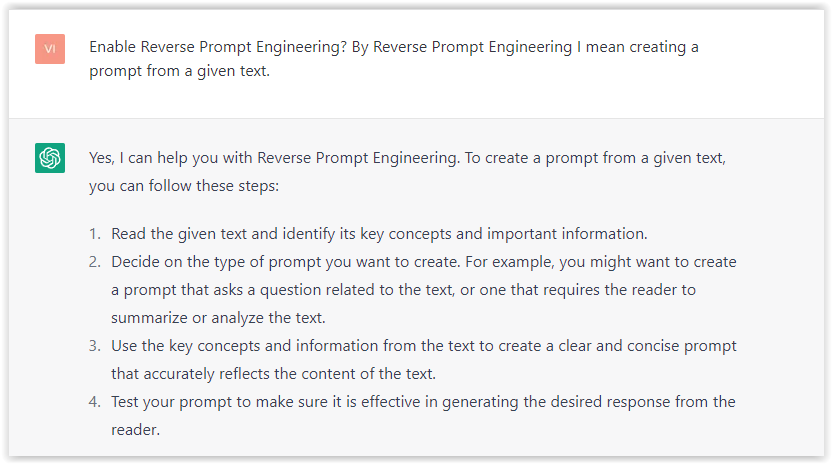SEO
How to Learn Local SEO: Skills, Reading & Courses
Local SEO is a smart skill set to master, especially if you have a local business.
All local businesses – from law firms to restaurants to retail stores to beauty salons – can benefit from local SEO.
Why? Because Google is one of the top platforms people use to find local businesses.
Whether you’re doing local SEO for yourself or someone else, here are some easy and free ways to learn local SEO from scratch.
Learn Local SEO As A Beginner
The following steps are just the beginning when it comes to learning local SEO, but it’s always best to start with the basics.
These are the building blocks from which you will learn and refine your local SEO skills.
Then, it’s mostly a matter of practice, experience, and patience.
1. Start With A Website
Your website is the primary testing ground for your local SEO strategy.
Some strategists even start with a basic “burner” website they can afford to “break” to test their SEO skills in the beginning.
Whether you have WordPress, Squarespace, or any other CMS (content management system), you should be able to start optimizing your website according to SEO best practices.
These best practices include:
- Optimizing your website content with local and non-local keywords.
- Writing unique title tags, meta descriptions, and page content.
- Optimizing your website site speed and mobile experience.
- Tracking your traffic with analytics tools.
- Optimizing image sizes and image alt text.
- Adding internal links to relevant content.
- Publishing new, engaging content.
- Scanning for and fixing technical SEO issues.
2. Learn SEO Tools
Most SEO tools can be used for local and “regular” SEO because they quantify how many users are searching for a particular keyword, how much traffic a website is getting, and other metrics that apply to most websites.
Common SEO tools like Semrush or Ahrefs can help you research keywords and competitors, analyze backlinks, and optimize your content.
Learning these SEO tools is one of the best things you can do when starting to learn local SEO.
Most tools have their own guides and even courses – look out for these, so you can learn how to use SEO tools directly from the source.
3. Optimize Your Content
SEO tools will help you discover the keywords users are searching for to find websites like yours.
Once you learn how to use these tools — and then find keywords based on search volume, competitiveness, and relevance — you can begin to optimize your content.
Optimizing your content means determining a target keyword for a page or post, using that keyword and related keywords throughout your content, and writing content that satisfies what users are searching for.
This applies to both local and non-local businesses.
4. Try Your Hand At Off-Site SEO
“Off-site” SEO refers to any SEO activities that occur off of your website.
Most commonly, this means link building, directory outreach, PR, and similar.
Once your website is optimized to the nines, you should aim to increase your website’s trust factor with valuable backlinks.
This can be done by marketing valuable content to other businesses, reaching out to blogs, running PR campaigns, submitting your business information to directories, and more.
Off-site SEO is very important for local businesses, so you will learn more about this in the following resources and courses.
Recommended Skills
There are a few skills that every business owner or strategist should strive for when it comes to learning local SEO.
Some are practical, and some are “softer” skills that make doing local SEO easier and more enjoyable.
Creativity
Even with all the tactical SEO tools and tricks you’ll encounter, you’ll eventually learn that creativity goes a long way.
Many business owners will learn the basics, but creative problem solving makes all the difference.
You will need creativity to:
- Uncover new keyword sets to target.
- Think up engaging content ideas.
- Come up with creative link-building strategies.
- Leverage partnerships and relationships to improve your SEO.
- Optimize your content for conversions, not just clicks.
- Reach more users with content marketing.
- Overcome SEO challenges with ease.
Don’t underestimate the value of creativity and problem solving!
Patience
You might have heard that SEO is a long game.
Often, this is true.
SEO can take a while to generate results, especially if you operate in a competitive market.
This is where patience comes in handy.
Know that your hard work may not pay off right away.
And know that this is normal.
Much of what you do in SEO will lay a solid foundation that will pay off later. It may be invisible initially, but doing things the right way (not taking the shortcut) will ultimately lead to your success.
Google Search Console and Google Analytics are great free tools you can use to track your progress.
Set a benchmark when you first start and then see how much your site grows over time – celebrate even the small wins!
Content Marketing
In SEO, “Content is king.”
Content is what users read when they get to your website.
It’s what users interact with on social media.
And it’s the text or video that ultimately convinces a customer to buy from you.
Content marketing skills like email marketing, social media content, video marketing, and blogging can help drive results for your website.
You will be better suited to create great content and generate more views across multiple platforms.
In this case, a background in content marketing will serve you well.
Website Development
While website development is not a “must-have” skill for SEO, it’s definitely beneficial.
People with at least a bit of web development experience may find optimizing a website and applying technical SEO fixes easier.
Consider taking a basic web development course or reading online guides about managing a website.
At the very least, you will learn common terms that apply to website and SEO.
Beyond that, you may learn a bit about coding, technical implementation, mobile development, and more advanced skills.
Data And Analytics
Every strategist and business owner should learn the basics of data and analytics.
For most, this means being able to interpret data from Google Search Console and Google Analytics.
Some of the most common metrics to know are:
- Impressions.
- Clicks.
- Search/keyword position.
- Conversion rate.
- Users.
- Views.
- Bounce rate.
- Organic traffic.
- Direct traffic.
- Referral traffic.
Knowing these – and how to find them in your chosen analytics tool – will help you track the success of your SEO and marketing efforts.
Online Reading
Want to learn local SEO for free?
Fortunately, there are tons of online resources available for beginners. We have rounded up a few of our favorites!
- Local SEO For Beginners: Getting Started – Search Engine Journal shares its beginner-friendly guide to local SEO, from the very beginning, to more advanced tactics.
- Local SEO: The Definitive Guide to Improve Your Local Search Rankings – A massive resource for learning local SEO. This guide includes best practices, expert strategies, tools, tips, and so much more.
- Local Search Marketing & Local SEO Strategy, Tips & Guides – A comprehensive roundup of local SEO strategies, tips, and guides. Look here if you want to find many local SEO tactics all in one place.
- What Is Local SEO & Why Local Search Matter – Get started with what local SEO is and why it matters. The better you understand the philosophy behind local SEO, the more prepared you will be to develop a successful SEO plan.
- Local SEO | SEO Resources For All Skill Levels – Moz – Moz is a great resource for business owners and SEO strategists alike. Here, they share resources for all skill levels.
- Local SEO: The Complete Guide – Ahrefs – Ahrefs is an industry leader in SEO tools. Here’s a robust local SEO guide, plus some tips for how to use Ahrefs to improve your local search strategy.
SEO Courses
There are many, many SEO courses available. That said, not all courses are created equal. Here, we are sharing some of the top local SEO courses – all free!
Local SEO Resources
Having worked primarily with law firms, local SEO is near and dear to my heart.
That’s why I write about it often at Search Engine Journal!
Here are a few additional local SEO resources, straight from my column at SEJ:
Learn Local SEO From The Best
Many online guides, courses, and webinars teach local SEO from scratch. But, the real magic of local SEO is in the hands-on experience.
That’s why I say “learning from the best” means learning from your own experience, mistakes, trials, and strategies.
The best way to learn what works for your website is to try different tactics, track the results, and adjust your strategy according to your learnings.
This is where the skills of Creativity and Patience come into play.
Your own creativity will inspire your strategy, and patience will ensure you are invested in the results. They will pay off!
More resources:
Featured Image: Ground Picture/Shutterstock
SEO
brightonSEO Live Blog

Hello everyone. It’s April again, so I’m back in Brighton for another two days of Being the introvert I am, my idea of fun isn’t hanging around our booth all day explaining we’ve run out of t-shirts (seriously, you need to be fast if you want swag!). So I decided to do something useful and live-blog the event instead.
Follow below for talk takeaways and (very) mildly humorous commentary. sun, sea, and SEO!
SEO
Google Further Postpones Third-Party Cookie Deprecation In Chrome

Google has again delayed its plan to phase out third-party cookies in the Chrome web browser. The latest postponement comes after ongoing challenges in reconciling feedback from industry stakeholders and regulators.
The announcement was made in Google and the UK’s Competition and Markets Authority (CMA) joint quarterly report on the Privacy Sandbox initiative, scheduled for release on April 26.
Chrome’s Third-Party Cookie Phaseout Pushed To 2025
Google states it “will not complete third-party cookie deprecation during the second half of Q4” this year as planned.
Instead, the tech giant aims to begin deprecating third-party cookies in Chrome “starting early next year,” assuming an agreement can be reached with the CMA and the UK’s Information Commissioner’s Office (ICO).
The statement reads:
“We recognize that there are ongoing challenges related to reconciling divergent feedback from the industry, regulators and developers, and will continue to engage closely with the entire ecosystem. It’s also critical that the CMA has sufficient time to review all evidence, including results from industry tests, which the CMA has asked market participants to provide by the end of June.”
Continued Engagement With Regulators
Google reiterated its commitment to “engaging closely with the CMA and ICO” throughout the process and hopes to conclude discussions this year.
This marks the third delay to Google’s plan to deprecate third-party cookies, initially aiming for a Q3 2023 phaseout before pushing it back to late 2024.
The postponements reflect the challenges in transitioning away from cross-site user tracking while balancing privacy and advertiser interests.
Transition Period & Impact
In January, Chrome began restricting third-party cookie access for 1% of users globally. This percentage was expected to gradually increase until 100% of users were covered by Q3 2024.
However, the latest delay gives websites and services more time to migrate away from third-party cookie dependencies through Google’s limited “deprecation trials” program.
The trials offer temporary cookie access extensions until December 27, 2024, for non-advertising use cases that can demonstrate direct user impact and functional breakage.
While easing the transition, the trials have strict eligibility rules. Advertising-related services are ineligible, and origins matching known ad-related domains are rejected.
Google states the program aims to address functional issues rather than relieve general data collection inconveniences.
Publisher & Advertiser Implications
The repeated delays highlight the potential disruption for digital publishers and advertisers relying on third-party cookie tracking.
Industry groups have raised concerns that restricting cross-site tracking could push websites toward more opaque privacy-invasive practices.
However, privacy advocates view the phaseout as crucial in preventing covert user profiling across the web.
With the latest postponement, all parties have more time to prepare for the eventual loss of third-party cookies and adopt Google’s proposed Privacy Sandbox APIs as replacements.
Featured Image: Novikov Aleksey/Shutterstock
SEO
How To Write ChatGPT Prompts To Get The Best Results

ChatGPT is a game changer in the field of SEO. This powerful language model can generate human-like content, making it an invaluable tool for SEO professionals.
However, the prompts you provide largely determine the quality of the output.
To unlock the full potential of ChatGPT and create content that resonates with your audience and search engines, writing effective prompts is crucial.
In this comprehensive guide, we’ll explore the art of writing prompts for ChatGPT, covering everything from basic techniques to advanced strategies for layering prompts and generating high-quality, SEO-friendly content.
Writing Prompts For ChatGPT
What Is A ChatGPT Prompt?
A ChatGPT prompt is an instruction or discussion topic a user provides for the ChatGPT AI model to respond to.
The prompt can be a question, statement, or any other stimulus to spark creativity, reflection, or engagement.
Users can use the prompt to generate ideas, share their thoughts, or start a conversation.
ChatGPT prompts are designed to be open-ended and can be customized based on the user’s preferences and interests.
How To Write Prompts For ChatGPT
Start by giving ChatGPT a writing prompt, such as, “Write a short story about a person who discovers they have a superpower.”
ChatGPT will then generate a response based on your prompt. Depending on the prompt’s complexity and the level of detail you requested, the answer may be a few sentences or several paragraphs long.
Use the ChatGPT-generated response as a starting point for your writing. You can take the ideas and concepts presented in the answer and expand upon them, adding your own unique spin to the story.
If you want to generate additional ideas, try asking ChatGPT follow-up questions related to your original prompt.
For example, you could ask, “What challenges might the person face in exploring their newfound superpower?” Or, “How might the person’s relationships with others be affected by their superpower?”
Remember that ChatGPT’s answers are generated by artificial intelligence and may not always be perfect or exactly what you want.
However, they can still be a great source of inspiration and help you start writing.
Must-Have GPTs Assistant
I recommend installing the WebBrowser Assistant created by the OpenAI Team. This tool allows you to add relevant Bing results to your ChatGPT prompts.
This assistant adds the first web results to your ChatGPT prompts for more accurate and up-to-date conversations.
It is very easy to install in only two clicks. (Click on Start Chat.)
For example, if I ask, “Who is Vincent Terrasi?,” ChatGPT has no answer.
With WebBrower Assistant, the assistant creates a new prompt with the first Bing results, and now ChatGPT knows who Vincent Terrasi is.
 Screenshot from ChatGPT, March 2023
Screenshot from ChatGPT, March 2023You can test other GPT assistants available in the GPTs search engine if you want to use Google results.
Master Reverse Prompt Engineering
ChatGPT can be an excellent tool for reverse engineering prompts because it generates natural and engaging responses to any given input.
By analyzing the prompts generated by ChatGPT, it is possible to gain insight into the model’s underlying thought processes and decision-making strategies.
One key benefit of using ChatGPT to reverse engineer prompts is that the model is highly transparent in its decision-making.
This means that the reasoning and logic behind each response can be traced, making it easier to understand how the model arrives at its conclusions.
Once you’ve done this a few times for different types of content, you’ll gain insight into crafting more effective prompts.
Prepare Your ChatGPT For Generating Prompts
First, activate the reverse prompt engineering.
- Type the following prompt: “Enable Reverse Prompt Engineering? By Reverse Prompt Engineering I mean creating a prompt from a given text.”
 Screenshot from ChatGPT, March 2023
Screenshot from ChatGPT, March 2023ChatGPT is now ready to generate your prompt. You can test the product description in a new chatbot session and evaluate the generated prompt.
- Type: “Create a very technical reverse prompt engineering template for a product description about iPhone 11.”
 Screenshot from ChatGPT, March 2023
Screenshot from ChatGPT, March 2023The result is amazing. You can test with a full text that you want to reproduce. Here is an example of a prompt for selling a Kindle on Amazon.
- Type: “Reverse Prompt engineer the following {product), capture the writing style and the length of the text :
product =”
 Screenshot from ChatGPT, March 2023
Screenshot from ChatGPT, March 2023I tested it on an SEJ blog post. Enjoy the analysis – it is excellent.
- Type: “Reverse Prompt engineer the following {text}, capture the tone and writing style of the {text} to include in the prompt :
text = all text coming from https://www.searchenginejournal.com/google-bard-training-data/478941/”
 Screenshot from ChatGPT, March 2023
Screenshot from ChatGPT, March 2023But be careful not to use ChatGPT to generate your texts. It is just a personal assistant.
Go Deeper
Prompts and examples for SEO:
- Keyword research and content ideas prompt: “Provide a list of 20 long-tail keyword ideas related to ‘local SEO strategies’ along with brief content topic descriptions for each keyword.”
- Optimizing content for featured snippets prompt: “Write a 40-50 word paragraph optimized for the query ‘what is the featured snippet in Google search’ that could potentially earn the featured snippet.”
- Creating meta descriptions prompt: “Draft a compelling meta description for the following blog post title: ’10 Technical SEO Factors You Can’t Ignore in 2024′.”
Important Considerations:
- Always Fact-Check: While ChatGPT can be a helpful tool, it’s crucial to remember that it may generate inaccurate or fabricated information. Always verify any facts, statistics, or quotes generated by ChatGPT before incorporating them into your content.
- Maintain Control and Creativity: Use ChatGPT as a tool to assist your writing, not replace it. Don’t rely on it to do your thinking or create content from scratch. Your unique perspective and creativity are essential for producing high-quality, engaging content.
- Iteration is Key: Refine and revise the outputs generated by ChatGPT to ensure they align with your voice, style, and intended message.
Additional Prompts for Rewording and SEO:
– Rewrite this sentence to be more concise and impactful.
– Suggest alternative phrasing for this section to improve clarity.
– Identify opportunities to incorporate relevant internal and external links.
– Analyze the keyword density and suggest improvements for better SEO.
Remember, while ChatGPT can be a valuable tool, it’s essential to use it responsibly and maintain control over your content creation process.
Experiment And Refine Your Prompting Techniques
Writing effective prompts for ChatGPT is an essential skill for any SEO professional who wants to harness the power of AI-generated content.
Hopefully, the insights and examples shared in this article can inspire you and help guide you to crafting stronger prompts that yield high-quality content.
Remember to experiment with layering prompts, iterating on the output, and continually refining your prompting techniques.
This will help you stay ahead of the curve in the ever-changing world of SEO.
More resources:
Featured Image: Tapati Rinchumrus/Shutterstock
-

 PPC6 days ago
PPC6 days ago19 Best SEO Tools in 2024 (For Every Use Case)
-
SEARCHENGINES5 days ago
Daily Search Forum Recap: April 19, 2024
-
SEARCHENGINES7 days ago
Daily Search Forum Recap: April 18, 2024
-

 WORDPRESS6 days ago
WORDPRESS6 days agoHow to Make $5000 of Passive Income Every Month in WordPress
-

 SEO7 days ago
SEO7 days ago2024 WordPress Vulnerability Report Shows Errors Sites Keep Making
-

 WORDPRESS7 days ago
WORDPRESS7 days ago10 Amazing WordPress Design Resouces – WordPress.com News
-

 SEO6 days ago
SEO6 days ago25 WordPress Alternatives Best For SEO
-

 WORDPRESS5 days ago
WORDPRESS5 days ago7 Best WooCommerce Points and Rewards Plugins (Free & Paid)
















You must be logged in to post a comment Login